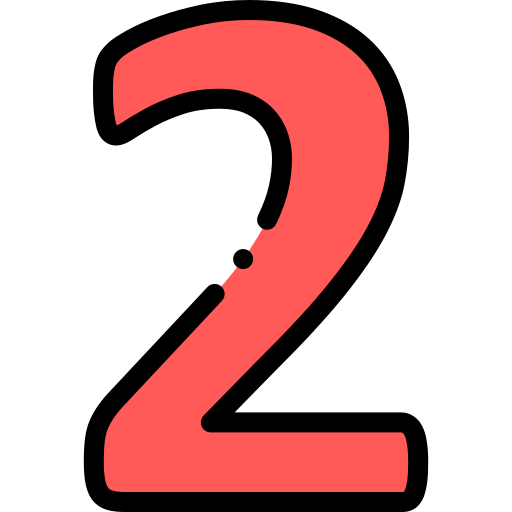At the Center, we use Modern Chinese as our textbook. The series is divided into five levels. In addition, teachers will use various supplementary materials in class. Typically, one textbook lesson is covered each week, though this may be adjustedaccording to the pace of the teacher. Students are expected to learn between eight to ten lessons per quarter.
Each session includes modules on vocabulary, grammar, oral comprehension, and semantic analysis, along with time for open discussion. Classes also include video and audio materials to help students apply what they learn in class to their daily life in Taiwan. Homework and exams are used to evaluatelearning outcomes.
Teaching Materials and Contents
Class Size
To ensure high-quality instruction, each class consists of 6 to 13 students.Small classes provide a comfortable learning environment and ample opportunities for interaction with teachers and peers, helping students rapidly improve their Chinese.
Levels
We offer nine levels of instruction. Each level requires approximately 180 hours to complete.
Students with prior experience in Chinese should choose a course at an appropriate level.At NCHU’s Language Center, We offer three ways to determine placement:
 For students outside Taiwan:we provide an online test to assess your Chinese proficiency and arrange suitable classes based on the test result.
For students outside Taiwan:we provide an online test to assess your Chinese proficiency and arrange suitable classes based on the test result.
 For students in Taiwan: You may take a placement test at the Center to help determine your level. We invite students who are already in Taiwan to take a placement test at the Language Center. This will help us get an idea of your level.
For students in Taiwan: You may take a placement test at the Center to help determine your level. We invite students who are already in Taiwan to take a placement test at the Language Center. This will help us get an idea of your level.
 Trial sessions: After the placement test, students may attend two trial sessions for free. If the class or textbook does not meet your expectations, you may switch classes.
Trial sessions: After the placement test, students may attend two trial sessions for free. If the class or textbook does not meet your expectations, you may switch classes.
Course Levels and Chinese Language Proficiency Comparison Table
※Course progress is for reference only and may vary depending on class conditions.
Students with prior experience in Chinese should choose a course at an appropriate level.At NCHU’s Language Center, We offer three ways to determine placement:
Course Levels and Chinese Language Proficiency Comparison Table
※Course progress is for reference only and may vary depending on class conditions.
| Course |
Course Progress Major Text Book “Modern Chinese” |
Course Content and Objects | Course Remark |
Cumulative Vocabulary |
TOCFL | HSK | ACTFL | CEFR |
| Level 1 |
【Book 1】 Hanyu Pinyin - Lesson 8 |
1. Learn Chinese Pinyin, common greetings used in daily life and simple self-introductions. 2. Learn quantity terms, how to make inquiries and plac orders; express basic needs, preferences, and make simple evaluations. 3. Learn to describe the location of items, give directions using transportation, and state purposes for travel. 4. Acquire a vocabulary of more than 271 words and master over 40 types of seentence structures. |
This course is suitable for beginners or those who have studied for less than 180 hours. | 300 | Band A (Level 1) | Level 1-2 | Novice-low | A1 |
| Level 2 |
【Book 1】 Lesson 9 - Lesson 16 |
1. Describe body parts, related emotions and health conditions. 2. Express interpersonal relationships and describe the process and feelings of meeting new friends. 3. Talk about work, mobile phone use, New Year activities, zodiac signs and festivals. 4. Introduce the characteristics of tourist location and their geographical environment 5. Acquire a vocabulary of more than 312 words and master over 36 types of sentence structures. |
1. This course is suitable for learners of combined study of 180 hours, HSK Level 2 or ACTFL Novice-low. 2. Be able to apply for TOCFL Band A(Level 2) upon course completion. |
600 | Band A (Level 1) | Level 3 | Novice-mid | A1 |
| Level 3 |
【Book 2】 Lesson 1 - Lesson 10 |
1. Use the "bǎ" construction. 2. Discuss topics such as rental conditions and hygiene in the living environment.3. Learn about night market culture, leisure and entertainment, travel, consumer culture, etc., and give brief introduction and comparison. 4. Describe the experience of studying abroad and express opinions on learning, examinations, fitness, sports and other activities. 5. Acquire a vocabulary of more than 554 words and master over 91 types of sentence structures. |
Be suitable for learners with approximately 360 hours of study, or those at TOCFL Band A (Level 1), HSK Level 3, ACTFL Novice-Mid, or CEFR A1 levels. | 1200 | Band A (Level 2 | Level 3-4 | Novice-high | A2 |
| Level 4 |
【Book 2】 Lesson 11 - Lesson 16 & 【Book 3】 Lesson 1 – Lesson 5 |
1. Discuss issues and experiences related to college life, such as departments, student clubs, part-time jobs, and online shopping. 2. Express gratitude, worship, indecision, regret, pity, and other delicate emotional expressions. 3. Compare two things and disadvantages in an organized opinions, and make suggestions. 4. Clearly describe disaster scenario and use warnings and reminders. 5. Acquire a vocabulary of more than 636 words and master over 73 types of sentenc structures. |
1. Be suitable for learners with approxmately 540 hours of study, or those at TOCFL Band A (Level 2), HSK Level 3, ACTFL Novice-High, or CEFR A2 learners. 2. Become eligiable to apply for TOCLF Band A (Level 2) upon course completion. |
2000 | Band A (Level 2) - Band B (Level 3) | Level 4 | Intermediate-low | A2-B1 |
| Level 5 |
【Book 3】 Lesson 6 – Lesson 16 |
1. Learn expressions for invitations, persuasions, requests, refusals, and rhetorical questions. 2. Discuss topics such as fast fashion, job interviews, cloud technology, historical sites, food crisis, etc. 3. Clearly describe a phenomenon, orally and in writing, analyze its impact on the public, and express opinions. 4. Summarize current events and present criticism from different perspectives. 5. Acquire a vocabulary of more than 659 words and master over 64 types of sentence structures. |
1. Be suitable for learners with approximately 720 hours of study, or those at TOCFL Band B (Level 2), HSK Level 4, ACTFL Intermediate-Low, or CEFR A2 levels. 2. Become eligiable to apply for TOCFL Band B (Level 3) upon course completion. |
2500 | Band B (Level 3) | Level 4-5 | Intermediate-mid | B1 |
| Level 6 |
【Book 4】 Lesson 1 – Lesson 11 |
1. Analyze and comment on issues related to environmental protection, cultural activities, stress issues, education systems, wedding customs, etc., and present opinions and suggestions for improvement. 2. Learn and use idioms, sayings, and news-related terms. 3. Discuss the above topics in a complete, clear, logical, and formal style, and use narrative and argumentative structures to write essays. 4. Acquire a vocabulary of more than 785 words and master over 76 types of sentence structures. |
Be suitable for learners with approximately 900 hours of study, or those at TOCFL Band B(Level 3), HSK Level 4, ACTFL Intermediate-Mid, or CEFR B1 levels. | 3500 | Band B (Level 4) | Level 5 | Intermediate-high | B2 |
| Level 7 |
【Book 4】 Lesson 12 – Lesson 16 & 【Book 5】 Lesson 1 – Lesson 6 (Instructor-designated textbook) |
1. Discuss topics related to youth employment, artificial intelligence, history, news, etc., clearly describe and evaluate these topics. 2. Learn and use idioms, sayings, and news-related.. 3. Interact fluently with native speakers. 4. Understand and use figurative language to discuss different topics, explain their viewpoints, and present strengths and weaknesses. 5. Acquire a vocabulary of more than 846 words and master over 76 types of sentence structures. |
1. Be suitable for learners with approximately 1080 hours of study, or those at TOCFL Band B (Level 3), HSK Level 5, ACTFL Intermediated-High, or CEFR B2 levels. 2. Be eligible to apply for TOCFL Band B (Level 4) upon course completion. |
5000 | Band B (Level 4)- Band C (Level 5) | Level 5-6 | Advanced-low | B2-C1 |
| Level 8 |
【Book 5】 Lesson 7 – Lesson 16 (Instructor-designated textbook) |
1. Use Chinese flexibly and effectively on professional topics. 2. Understand complex and lengthy texts and identify implied meanings. 3. Write well-structured discourses with appropriate style on complex topics. 4. Acquire a vocabulary of more than 800 words. |
Be suitable for learners with approximately 1260 hours of study, or those at TOCFL Band B (Level 4), HSK Level 6, ACTFL Advanced-Low, or CEFR B2 levels. | 7000 | Band C (Level 5) | Level 6 | Advanced-mid | C1 |
| Level 9 | 【Book 5】(Instructor-designated textbook) |
1. Use Chinese flexibly and effectively on professional topics. 2. Understand complex and lengthy texts and identify implied meanings. 3. Recognize context and cultural differences to enhance communication. 4. Master advanced grammar and vocabulary to improve language sophistication. 5. Integrate listening, speaking, reading, and writing skills for use in various real-life situations. |
Be suitable for learners with approximately 1260 hours of study, or those at TOCFL Band B (Level 4), HSK Level 6, ACTFL Advanced-Mid, or CEFR B2-C1 levels. | 8000 UP | Band C (Level 5) | Above Level 6 | Advanced-mid | C1-C2 |
Hands-on Cultural Activities
Our most popular course invites students to participatea wide range of cultural activities inspired by the seasons of the Lunar calendar and elements of traditional culture.
Activities include writing Spring Festival couplets, solving lantern riddles, making fragrant sachets, Chinese knotting, Chinese painting, pottery, macramé, Mahjong, and more.These engaging experiences not only introduce the beauty of traditional Chinese culture but also give you the opportunity to experience it firsthand.
Activities include writing Spring Festival couplets, solving lantern riddles, making fragrant sachets, Chinese knotting, Chinese painting, pottery, macramé, Mahjong, and more.These engaging experiences not only introduce the beauty of traditional Chinese culture but also give you the opportunity to experience it firsthand.
Copyright © EChinese Program,Language Center,NCHU all rights reserved. Ching-Mei
Privacy and Security Policy Intellectual property rights Website feedback SiteMap
Privacy and Security Policy Intellectual property rights Website feedback SiteMap

